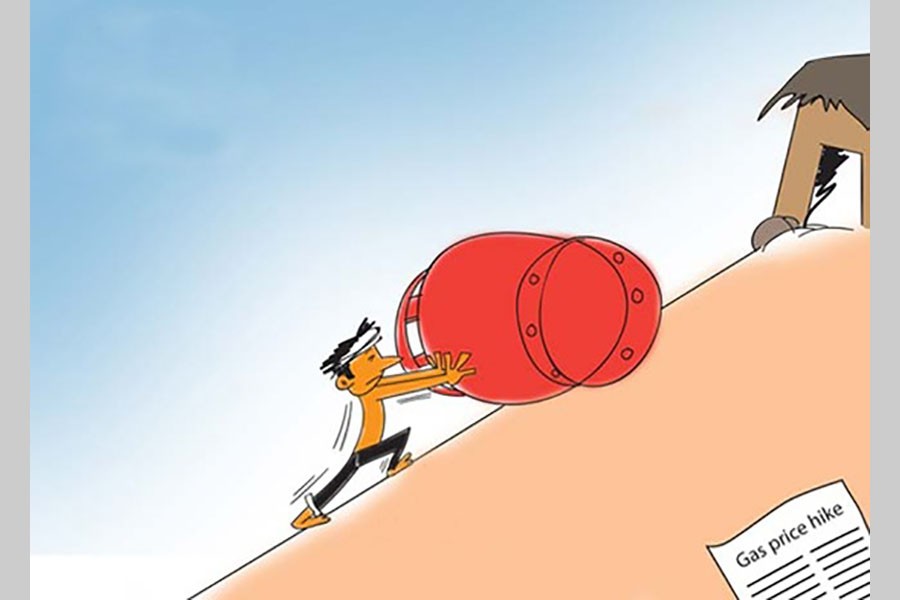When the gap between demand for, and supply of, particular goods and services is too large and an ever-widening one, propensity to indulge in irregularities and exploit the situation among some people tend to rise. A case in point is the piped gas connections, provided by the state-owned gas distribution companies. Some statistics presented in a recent newspaper report do only highlight the ongoing sordid state of the country's gas sector. How would a genuine gas connection-seeker, having valid 'demand note' in his or her possession, feel when he or she learns about the fact that more than 250,000 people could manage connections illegally between 2014 and 2018? He or she is not alone. At least, 100,000 people have been waiting in long queues for 'legal' connections for years together.
What is more frustrating is that pilferers have been consuming gas valued at about Tk.2.0 billion a year and not a penny against such consumption is given to the gas distribution companies. However, gas consumed by the 'illegal' subscribers is, reportedly, shown as 'system loss' by the distribution companies concerned. The money collected from the illegal consumers of gas is shared by some politically powerful local people and an unscrupulous section of officials and employees of these companies. Officially, new gas connections have remained suspended since 2010. Yet 750,000 people reportedly got gas through legal connections during the last seven years and the majority of them were domestic consumers.
Short-supply and pilferage of gas and highhandedness of a section of officials and employees of gas distributions companies have made the sector a hotbed of irregularities. The rot is more visible in the Titas gas company which is a major stakeholder in the gas distribution business. As it happens in the case of other state-owned utility service-providers, the Titas gas and the like do pass the burden of their misdeeds on to the consumers. They raise gas tariff on a regular basis, almost arbitrarily. Though there is an energy sector regulator called Bangladesh Energy Regulatory Commission (BERC), it is found to be more sympathetic towards the cause of the gas companies. The public hearings are held on tariff-hike proposals, but most proposals made to alleviate the sufferings, financial or otherwise, of consumers are ignored by the commission.
Another move is now on to hike the gas tariff on the pretext of supplementing the domestic gas with liquefied natural gas (LNG), imported at high costs. The hike in gas tariff, proposed by the gas companies, is substantial. If not the domestic consumers, other users of piped gas, including industries, will have to count extra costs. Besides, as soon as the proposed hike in gas prices is given effect to, the BERC will, invariably, have to deal with power tariff-hike proposals coming from power distribution companies. Businesses have already voiced their strong opposition to gas price-hike proposals. But the hike, as the available indicators suggest, will be inevitable. However, the burden of extra cost that the consumers are made to shoulder could be reduced to a large extent had the power and gas companies been serious and sincere about eliminating corruption and pilferage, to a notable measure, from the two sectors.


